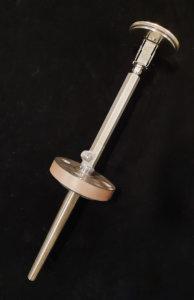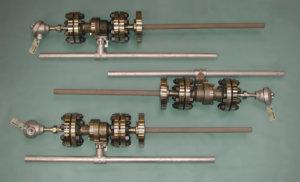Did you know that the United States of America produced over six billion barrels of crude oil and other petroleum products in 2021? And it’s only predicted to continue to grow.
In the oil and gas industry, temperature sensors play a vital role. They provide real-time data to help manage and optimize production.
By using oil and gas sensors at various points in the production process, operators can make changes to boost efficiency and avoid extra costs. This makes for a better profit overall.
Why Are Sensors Used in the Industry?
Sensors of all kinds, though particularly temperature sensors, are needed at every step in the process, from exploration up to refinery.
The thermal properties of oil can strongly affect performance, quality, and efficiency.
The ability to measure the temperature of crude oils allows engineers to optimize heat controls and minimize energy consumption.
Sensors, when properly integrated with the equipment used, provide real-time insights that help companies plan maintenance and optimize their operations.
There are various types of temperature sensors that have their own merits depending on the step in the process or the piece of equipment being monitored.
Sensors used in the oil and gas industry are incredibly accurate, reliable, and safe for use.
What Types of Temperature Sensors are There?
Temperature sensors fall into two main categories: contact type and non-contact.
Non-contact temperature sensors rely on electric, magnetic, or sonic technology in order to take their measurements. To take temperatures specifically, they emit a type of energy, usually infrared.
Contact type temperature sensors can be further broken down into three subsets- thermistors, thermocouples, and resistance temperature detectors.
Thermistors are cost-effective and easy to manage. They need an exciting current to operate, but the current should be minimized to prevent heating.
Thermocouples are the most commonly used temperature sensors. They are self-powered by generating their own voltage. When thermocouples detect a change in temperature, they modify this voltage output.
Resistance Temperature Detectors, or RTDs, work much the same as a thermistor does. However, they are known for being a more accurate type of sensor and tend to have a wider temperature range.
Many factors influence the choice of the right type of sensor to deal with a given situation, such as temperature ranges, vibrations, pressure, and other outside factors acting upon the sensor.
How Does the Oil and Gas Industry Benefit From Sensors?
Sensors, overall, are an investment. They help ensure quality products across the board and keep equipment from being too damaged.
Refiners and processors in particular have spent an unbelievable amount of time and resources to try and develop strategies that specialize in temperature measurement. By having temperature sensors, that time and resources can go to other areas that also need their help.
The oil and gas industry is highly reliant on the use of these sensors to avoid unscheduled disruptions or machines breaking down.
Production is a process that requires constant monitoring and measuring of multiple factors from temperature to pressure in order to ensure nothing goes wrong.
The demand for sensors- and temperature sensors in particular- only continues to grow. In 2018 it was at 5.02 billion USD, and is projected to reach 7.88 billion by 2026.
Do Temperature Sensors Save Money for the Oil and Gas Industry?
Temperature sensors can save the oil and gas industry a great deal of money on multiple fronts.
Getting real-time updates on technology prevents a lot of trouble. Knowing information about the oil process as it occurs helps prevent quality errors.
Having the right kind of sensors can help with your equipment. This way, it means being able to base maintenance on how the equipment is doing rather than scheduling maintenance at regular intervals.
Just having the sensor can help save money, because pump damage won’t occur. You’ll be able to monitor the pipe performance and know when it runs dry.
In addition, it protects the integrity of the finished product. Temperature measurement is especially important in the steps like refining and processing.
As stated above, when the temperature affects the pipes and makes them run dry, it isn’t just the equipment that can be damaged. The oil and gas products suffering a hit in quality would definitely mean more costs for your company.
What About Other Sensors?
Temperature sensors are wonderful and crucial to the oil and gas industry, but they aren’t the only kind of sensor that’s used to make sure everything is working as it should. Oil and gas pressure sensors are a type of sensor that is also in high demand.
This type of sensor gauges the pressure currently at play and converts that pressure into an electric signal that it uses to convey the message.
These sensors also gauge the pressure being put on casing and tubing used on wellheads and separator vessels.
The use of these allows the person operating the equipment to quickly adjust the flow pressure during drilling, which results in optimized oil withdrawal. In addition, it allows the operator to handle problems such as gas bubbles, increasing everyone’s safety.
Learn More About Temperature Sensors Today!
Now that you’ve heard all about why temperature sensors are so essential in the oil and gas industry, it’s time to take the next step.
Temperature sensors are used in more situations than to monitor oil and gas, like the cement industry.
If you found this article informative, why not learn more about the demand for sensors across multiple industries through our site?





